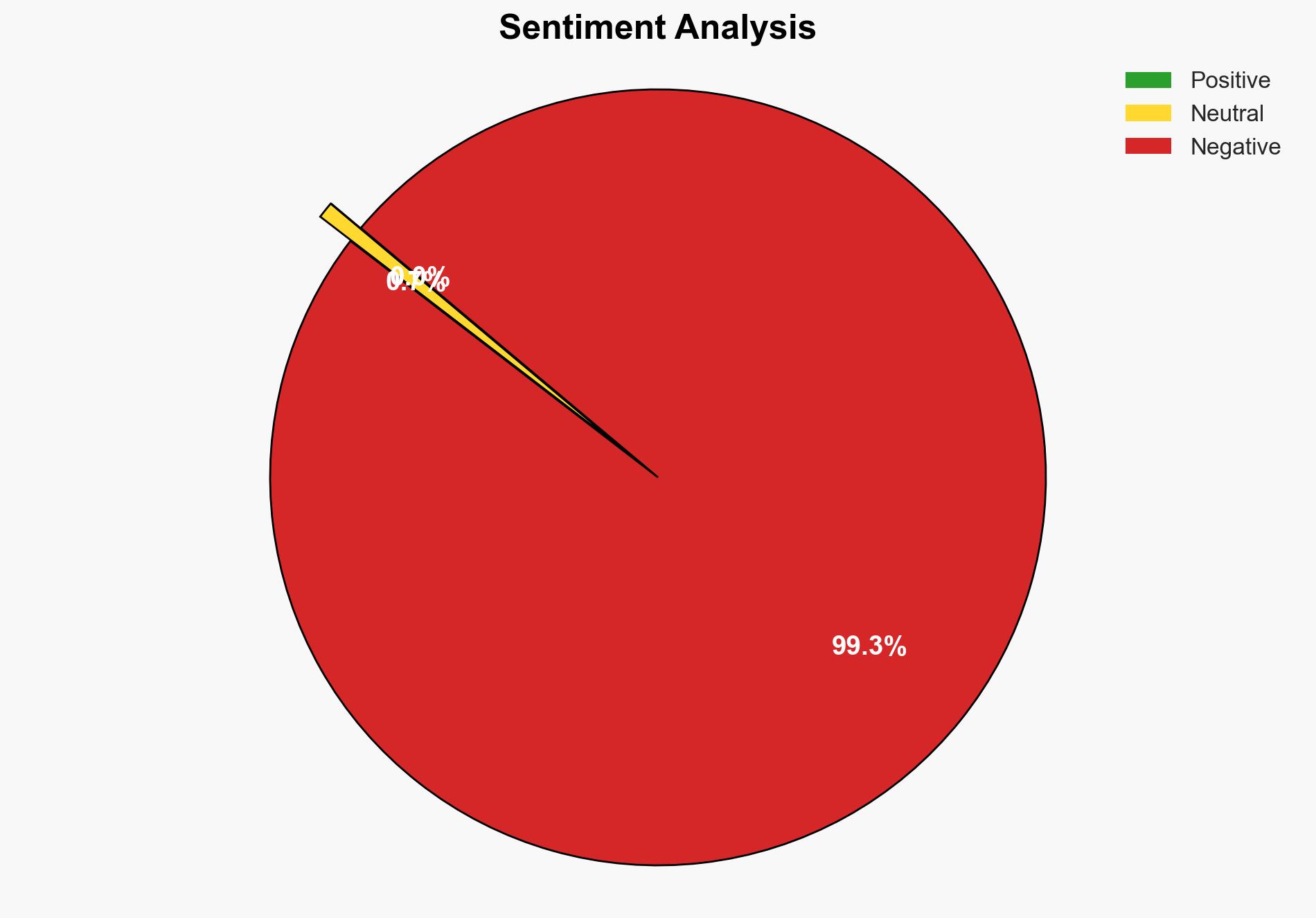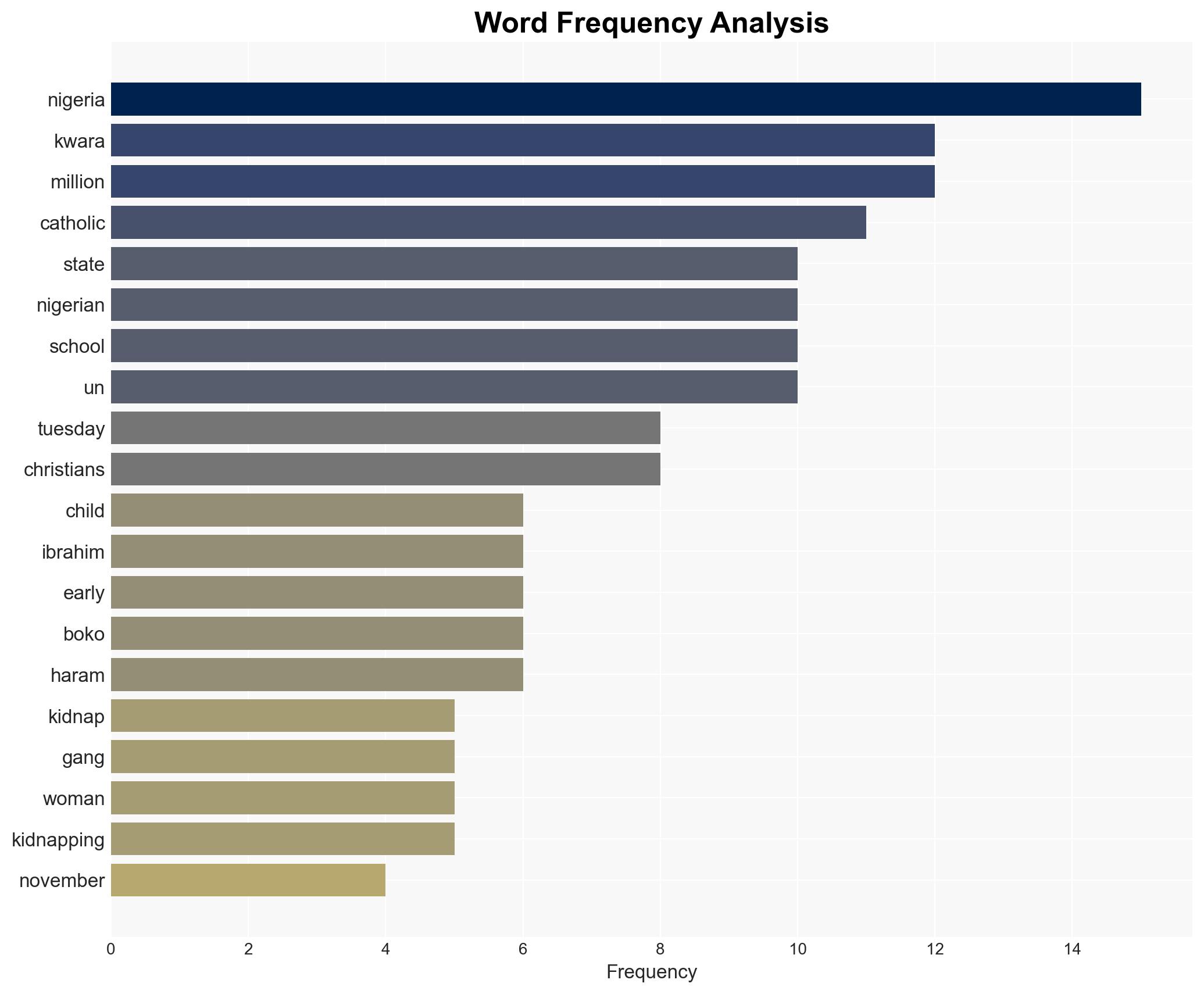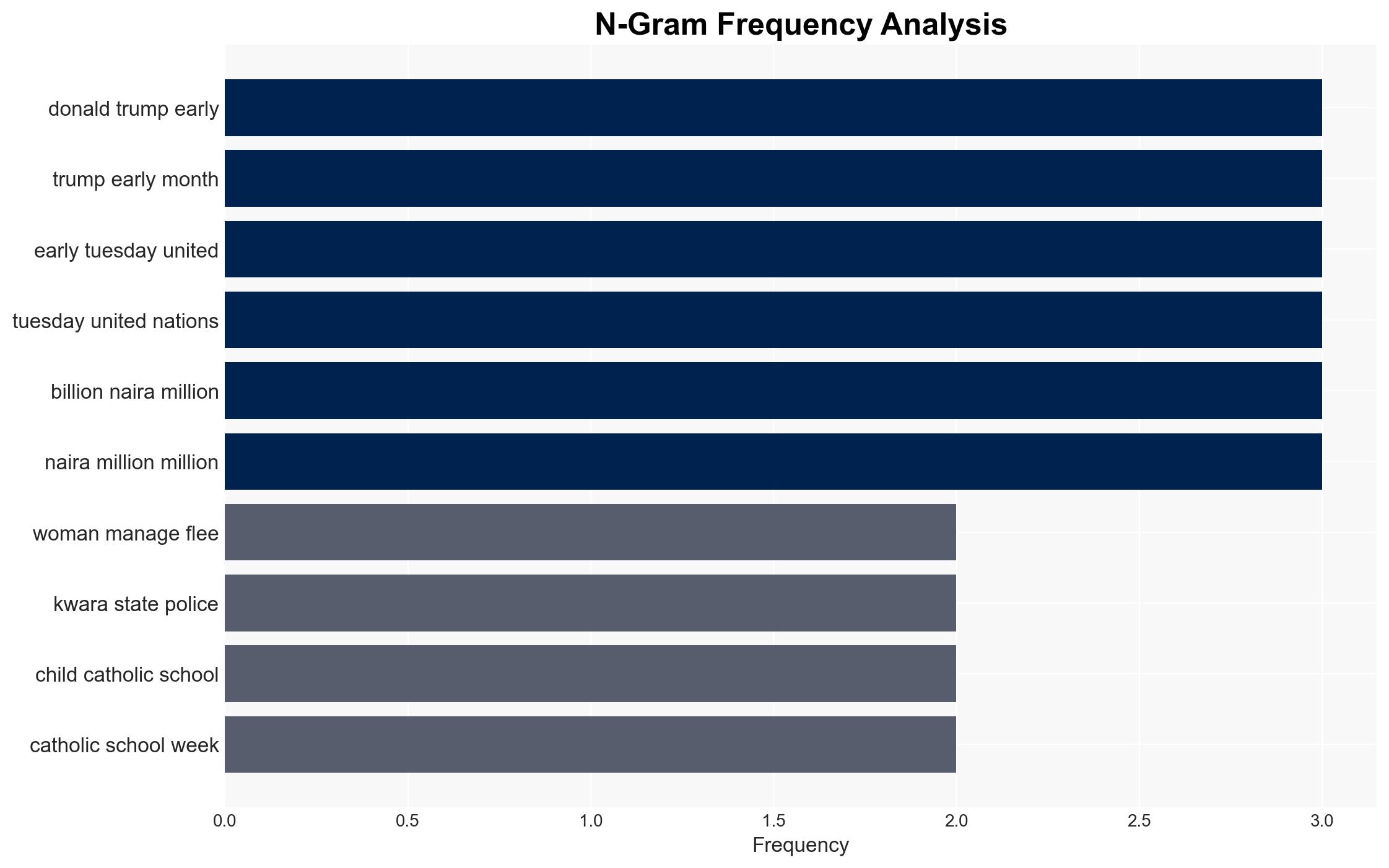Nigeria 10 kidnapped in Kwara as gang seizures continue
Published on: 2025-11-25
AI-powered OSINT brief from verified open sources. Automated NLP signal extraction with human verification. See our Methodology and Why WorldWideWatchers.
Intelligence Report:
1. BLUF (Bottom Line Up Front)
The persistent kidnappings in Nigeria, particularly in Kwara State, highlight a significant security threat exacerbated by both criminal gangs and jihadist elements. The most supported hypothesis is that these kidnappings are primarily driven by financially motivated criminal gangs exploiting weak security infrastructure. A high confidence level supports this hypothesis, given the historical patterns of ransom demands. Strategic recommendations include enhancing local security measures, improving intelligence-sharing mechanisms, and engaging in community outreach to build trust and gather actionable intelligence.
2. Competing Hypotheses
Hypothesis 1: The kidnappings are primarily conducted by financially motivated criminal gangs seeking ransom payments. This hypothesis is supported by the structured demands for ransom and the historical context of similar incidents in Nigeria.
Hypothesis 2: The kidnappings are part of a broader jihadist strategy to destabilize the region and exert influence. This is supported by the involvement of groups like Boko Haram in past abductions and the targeting of schools, which aligns with jihadist tactics.
The first hypothesis is more likely due to the consistent pattern of ransom demands and the involvement of local criminal elements, as opposed to the more ideologically driven actions of jihadist groups.
3. Key Assumptions and Red Flags
Assumptions include the belief that local law enforcement is under-resourced and that community cooperation is limited due to distrust. A red flag is the potential for misinformation or underreporting of incidents, which could skew analysis. Deception indicators include potential false flag operations by jihadist groups posing as criminal gangs to mask their involvement.
4. Implications and Strategic Risks
The continuation of kidnappings poses risks of political destabilization, economic strain due to ransom payments, and societal fear. Escalation could lead to increased foreign intervention or pressure, particularly if international citizens are targeted. The potential for retaliatory violence or community vigilantism also exists, further destabilizing the region.
5. Recommendations and Outlook
- Enhance local security forces through training and resources to improve response capabilities.
- Develop community engagement programs to build trust and gather intelligence.
- Implement technology solutions for monitoring and rapid response, such as drones or surveillance systems.
- Best-case scenario: Successful disruption of gang activities and restoration of security in affected areas.
- Worst-case scenario: Escalation of kidnappings leading to broader regional instability and international intervention.
- Most-likely scenario: Continued sporadic kidnappings with incremental improvements in security response.
6. Key Individuals and Entities
Ojo Adekimi (Police Commissioner, Kwara State), Michael Ibrahim (Victim’s family member), Boko Haram (Jihadist group), SBM Intelligence (Consulting firm).
7. Thematic Tags
Structured Analytic Techniques Applied
- Cognitive Bias Stress Test: Expose and correct potential biases in assessments through red-teaming and structured challenge.
- Bayesian Scenario Modeling: Use probabilistic forecasting for conflict trajectories or escalation likelihood.
- Network Influence Mapping: Map relationships between state and non-state actors for impact estimation.
Explore more:
National Security Threats Briefs ·
Daily Summary ·
Support us





